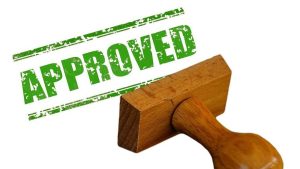Yes, payday lenders report information regarding payday loans to credit reference bureaus. This will include whether the loan has been paid on time, if there were any late repayments or if it was not paid at all and the loan is in arrears.
3 major US credit reference agencies include Equifax, Experian and TransUnion. The bureaus receive and relay information from payday lenders in real-time, enabling future lenders and creditors of all types of financial products to make informed lending decisions since they have access to this information.
For instance, a lender may decide that a customer with 2 loans paid off may be a good candidate for funding, whereas another with 2 loans in arrears may be worth avoiding. Whilst this may make it more difficult for borrowers with poor credit histories to secure finance or credit, it should help them in the long run since if they are given loans that they cannot afford, they may struggle to repay it back and worsen their financial situation.
The following guide explains how and why payday lenders report back to credit bureaus.
Key points:
- Payday loan providers in the US report information from applications or loans to credit reference bureaus.
- The financial information helps other future companies to determine whether or not a potential customer is a reliable or trustworthy candidate to lend money to.
- Payday lenders pay a small fee to access this vital information from bureaus as part of their credit checks and they also send back information so it is a reciprocal exchange.
How Do Credit Reference Bureaus Work?
Credit reference bureaus hold all credit information about customers from the age of 18 onwards. All credit transactions are recorded on an individuals’ credit report or formulated into their credit score. Lenders can then access this information every time they carry out a ‘credit check’ on a customer, which costs around $3 for each check as part of the underwriting decision process.
So a typical payday lender in Florida for example, will assess a candidate’s loan application, run some background checks (predominantly using a credit bureau to do so) and then either approve or decline the customer’s payday loan application.

What Information Does Credit Reference Bureaus Hold?
Credit reference bureaus are aware of customers:
- Full name
- Postal address
- Financial transactions (including credit cards, loans, mortgages, cell phone and utility bills)
- Joint accounts or associates that customers are financially linked with
- Credit score
- Recent loan enquiries
- Any cash advances
- Bankruptcies, arrears or court orders
What Do Payday Lenders Report To Credit Reference Bureaus?
Payday lenders share the following information with credit reference bureaus:
- If an application was submitted and there was a hard or soft credit search
- If a loan repayment or installment was paid on time
- If a loan was not repaid on time and is now in arrears
- If an arrangement to pay or debt collection plan was organized
Whilst payday lenders send information to credit bureaus, they also receive data from the agencies, meaning it is a reciprocal process. Bureaus hold this information to help all those involved to make more informed lending decisions.

How Long Is Payday Lenders Information Held By A Credit Reference Bureau?
Whilst most information is held by credit reference bureaus permanently, some details get removed after a few months or years. For instance, loan enquiries such as basic applications are typically erased off the database after a few weeks or months. Particulars such as court orders and bankruptcy however may stay on file for as many as 6 years.
A positive about financial reporting is that it can certainly change. So even if your credit rating fell due to falling behind on loan repayments, there are many ways you could improve your credit score over time and make it stronger. Consistently making payments on time, paying off all your debts, closing down any cards or loans that you do not need, dissociating from joint accounts with those who have bad credit and only borrowing what you can afford should all stand you in good stead for a positive credit reference bureau record.
Was this article helpful?
Justine is a full-time writer with lots of expertise and a wealth of experience in the financial world. In particular, she specializes in household income and consumer finance across the United States. Follow her articles for useful advice and top tips, guides on how to save money and lots more.
